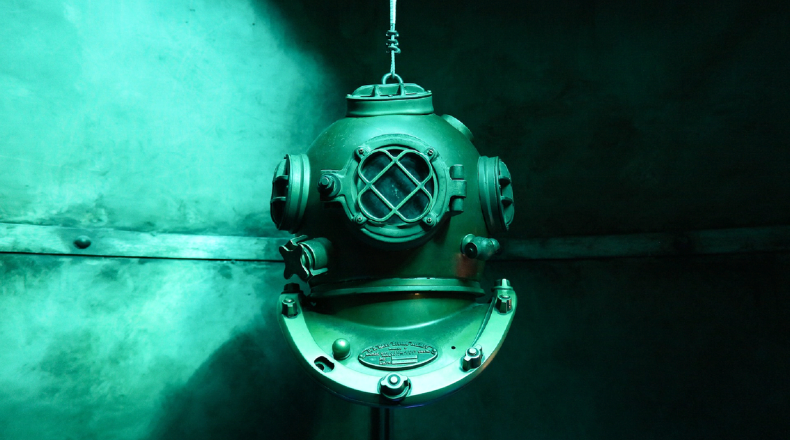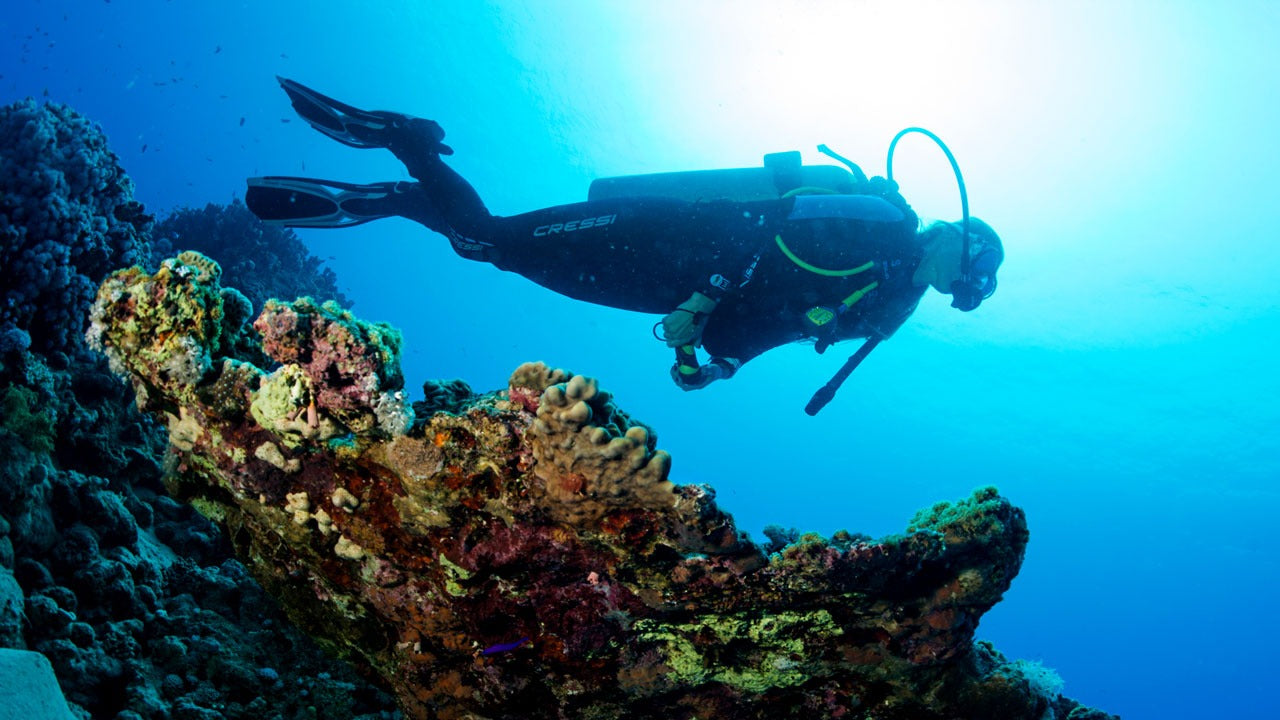License to Dive: Why People Are Attracted to Scuba Diving?

"Every time you dive, you hope you'll see something new - some new species. Sometimes the ocean gives you a gift, sometimes it doesn't.” James Cameron
“I just learned how to scuba dive. I'd been scared to rely on one little air hose for oxygen, but swimming with all those fish is exhilarating.” Cheryl Hines
“I grew up watching 'Superman.' As a child, when I first learned to dive into a swimming pool, I wasn't diving; I was flying, like Superman.” Tom Hiddleston
Statements such are these are typical of people who take scuba diving as a profession. Scuba diving can be an exhilarating and rewarding experience. Learning to dive is a fun-filled joyous adventure that allows you to explore the uncharted realms of the oceans and seas. Voices such as these are repeated by countless other people who have dared to learn about the art of scuba diving.
Inspiration and Motivation
The profession of scuba diving is not without risks and perils. Diving deep in the ocean with nothing more than a few under-water diving apparatus is no doubt a dangerous endeavor. You put your own life at risk to explore the vast reaches of the oceans. So what is the reason behind people opting for scuba diving as a profession?
The simplest answer is that these people have a passion to dive and make a leap to the unknown. They have a passion for adventure to discover new places and explore the unknown that many people in the world have never experienced.
The motive that spurs people to dive varies from person to person. One’s inner drive compels people to take scuba diving as a profession. These people have diving in their blood and take euphoric pleasure in diving.
In other words, diving is what makes these people alive. The internal motivation is important especially in scuba diving, as you have to master a number of challenging skills to become an expert scuba diver.
So, do you also have a passion for diving? Do you want to know what it takes to obtain a license to dive? Join us and explore the skills and training you require to become proficient in the scuba diving profession.
How People Become Expert Divers
There are certain water-related professions that are closely related to scuba diving. If you are an avid swimmer or like to snorkel underwater, learning to scuba dive can be a breeze for you. Most professional swimmers are experts at diving and can quickly learn the art of scuba diving.
Similarly, people who snorkel are aware of the challenges of underwater diving. They have already seen the spectacular beauty of the ocean and learning to explore the deep underwater oceans will not be a problem for them.
For the rest of us, who are clearly in the majority, learning to dive deep can certainly be a challenging prospect. Challenging yes, but it is certainly not impossible by any means.
Scuba diving has seen an increasing trend in popularity in the last few decades. People who enjoy sports activities like walking, running, tennis, bicycle, and others are now gravitating towards scuba diving. The under-water profession has become so “chic” that models adorn the cover magazines of popular issues of Vogue, GQ, Elle, or any other fashion magazine.
Scuba diving is no more an adventure for the daredevils. It is now becoming universally popular as an entertainment activity alike to skiing, jogging, and playing tennis. Both men and women enjoy this sport, which though challenging, is not as hard and physically demanding as gymnastics, rugby, or even surfing.
Then there is the concern about going green that is attracting some people to diving. A lot of environmentalists are gravitating towards the sport because they want to experience firsthand how biodiversity is being affected by human pollution. They may have a deep desire to save the earth and for that, they take the step to scuba dive. In this way, they can show to the world how our earth is being damaged by the pollution that we dump in the seas.
Moreover, age is not a factor when it comes to scuba diving. Various studies have shown that this profession is attracting both elders and teenagers alike who want to experience the fun and adventure of scuba diving.
Learning to Scuba Dive
Becoming an expert scuba diver requires three vital traits. You should be healthy, have a deep desire to dive, and most importantly, you must be able to breathe. If you have these desired traits then all you need is to banish your fears and concern about scuba diving.
Are you afraid that a shark will eat you alive? Do whales give you shivers? Or is it the fear that Captain Davey Jones of the Flying Dutchman will make you a slave on his ship? Whatever your fears it is important that you overcome them if you want to be successful in your journey of becoming a successful scuba diver.
The fact is that sharks and whales present little or no threat to scuba divers. You are more likely to drown in a bathtub than getting attacked by a shark or while during your underwater escapades. During your scuba diving adventures, you will learn a lot about the interesting world of the seas. You will get a chance to explore exotic marine life that few have ever laid eyes on.
Another concern that is in the mind of most people when it comes to scuba diving is the air you breathe with the scuba breathing tanks. The gas you breathe with the underwater apparatus is similar to the one you are breathing right now – oxygenated air. Misconceptions regarding this are more popular among people who have never experienced scuba diving before. The air that you breathe with this apparatus is not pure oxygen and doesn’t cause you lung problems and other abnormalities. It is perfectly safe for your health.
Scuba diving is more like a marathon. The journey of becoming an expert scuba diver is no doubt challenging. But, in the end, excelling at the sport is well worth the time and effort.




